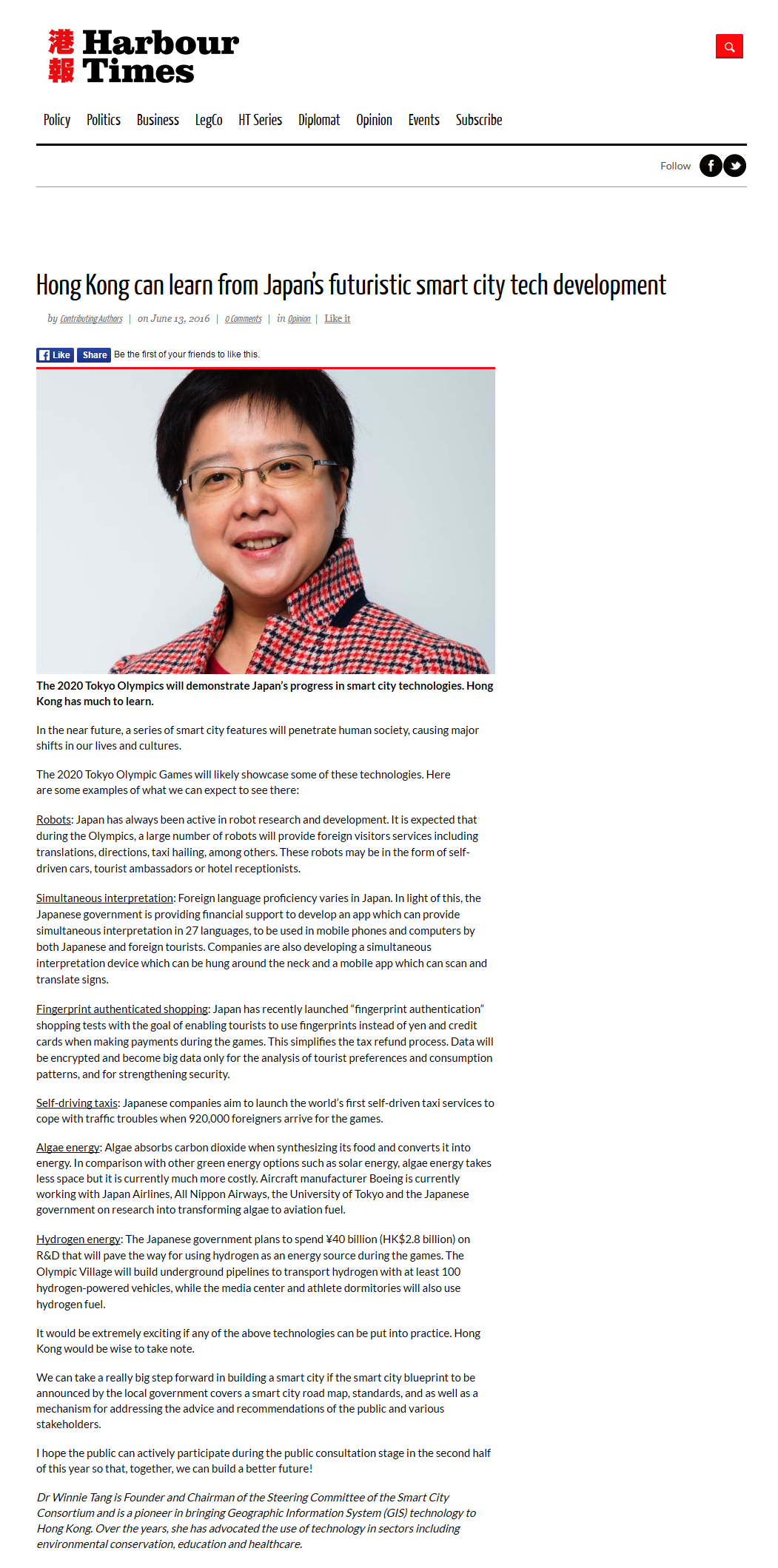網上版請按此

Hong Kong can learn from Japan's futuristic smart city tech development
In the near future, a series of smart city features will penetrate human society, causing major shifts in our lives and cultures.
The 2020 Tokyo Olympic Games will likely showcase some of these technologies. Here are some examples of what we can expect to see there:
Robots: Japan has always been active in robot research and development. It is expected that during the Olympics, a large number of robots will provide foreign visitors services including translations, directions, taxi hailing, among others. These robots may be in the form of self-driven cars, tourist ambassadors or hotel receptionists.
Simultaneous interpretation: Foreign language proficiency varies in Japan. In light of this, the Japanese government is providing financial support to develop an app which can provide simultaneous interpretation in 27 languages, to be used in mobile phones and computers by both Japanese and foreign tourists. Companies are also developing a simultaneous interpretation device which can be hung around the neck and a mobile app which can scan and translate signs.
Fingerprint authenticated shopping: Japan has recently launched “fingerprint authentication” shopping tests with the goal of enabling tourists to use fingerprints instead of yen and credit cards when making payments during the games. This simplifies the tax refund process. Data will be encrypted and become big data only for the analysis of tourist preferences and consumption patterns, and for strengthening security.
Self-driving taxis: Japanese companies aim to launch the world's first self-driven taxi services to cope with traffic troubles when 920,000 foreigners arrive for the games.
Algae energy: Algae absorbs carbon dioxide when synthesizing its food and converts it into energy. In comparison with other green energy options such as solar energy, algae energy takes less space but it is currently much more costly. Aircraft manufacturer Boeing is currently working with Japan Airlines, All Nippon Airways, the University of Tokyo and the Japanese government on research into transforming algae to aviation fuel.
Hydrogen energy: The Japanese government plans to spend ¥40 billion (HK$2.8 billion) on R&D that will pave the way for using hydrogen as an energy source during the games. The Olympic Village will build underground pipelines to transport hydrogen with at least 100 hydrogen-powered vehicles, while the media center and athlete dormitories will also use hydrogen fuel.
It would be extremely exciting if any of the above technologies can be put into practice. Hong Kong would be wise to take note.
We can take a really big step forward in building a smart city if the smart city blueprint to be announced by the local government covers a smart city road map, standards, and as well as a mechanism for addressing the advice and recommendations of the public and various stakeholders.
I hope the public can actively participate during the public consultation stage in the second half of this year so that, together, we can build a better future!
Dr Winnie Tang
Founder and Chairman of the Steering Committee of the Smart City Consortium and is a pioneer in bringing Geographic Information System (GIS) technology to Hong Kong. Over the years, she has advocated the use of technology in sectors including environmental conservation, education and healthcare.